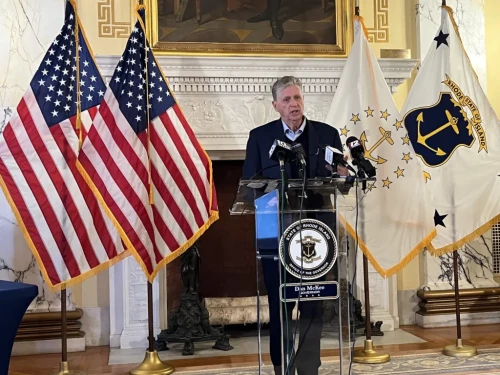Following his election, President Donald Trump announced plans to impose tariffs on most U.S. imports, including a 25% tariff on products from Canada and Mexico. If the administration makes good on that threat, it would upend decades of North American Free Trade.
Morning host Luis Hernandez spoke about the implications of Trump’s plan with Nina Eichacker, Associate Professor of Economics at the University of Rhode Island.
Interview highlights
What is an import tariff?
Nina Eichacker: An import tariff is a tax assessed by a government on goods that are imported from other countries. The way that they work is that typically, a domestic import broker that works for businesses domestic to a given economy basically pays the customs when those goods are supposed to enter the country.
Typically, it’s not the foreign company that is exporting the good that pays it, but rather the import broker that works for a domestic importer, whether that’s Walmart or Costco or whoever. So tariffs are taxes that are assessed on different goods from different countries, and they can be implemented for any number of reasons.
On the impact the tariffs would have on Rhode Island residents
Eichacker: As those goods go through customs, the firm that is importing the goods – like, for example, Walmart – will subsequently pass that extra cost onto consumers. So domestic consumers are, by and large, the actors who pay the tariffs in practice.
This interview was conducted by The Public’s Radio. You can read the entire story here.







